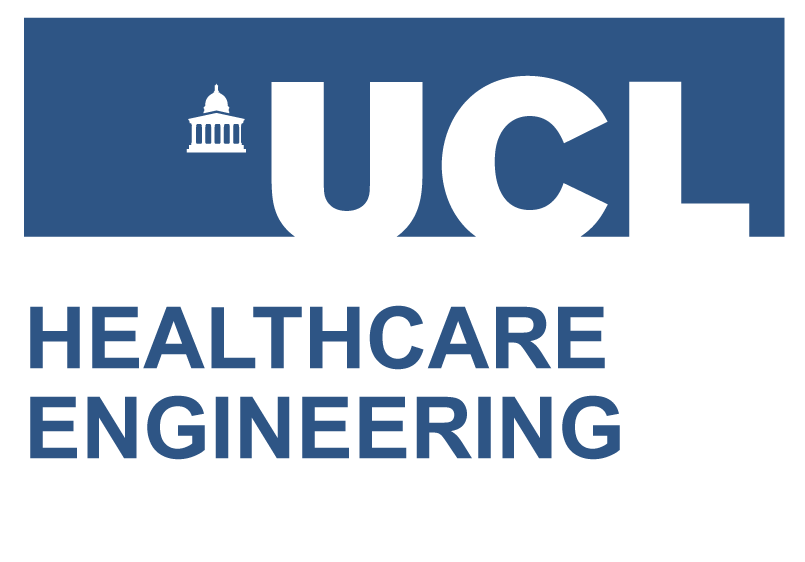UCL-Ventura CPAP in Africa
In mid-March 2020, the growth of COVID-19 in the UK stimulated the formation of a unique, interdisciplinary consortium of engineers, critical care consultants and manufacturers with the aim of delivering non-invasive ventilation devices to the NHS, at a pace to match the COVID-19 surge.
The UCL-Ventura team brings together engineers at UCL Institute of Healthcare Engineering, UCL Mechanical Engineering and Mercedes-AMG High Performance Powertrains (Formula 1) with critical care consultants at University College London Hospital (UCLH).
The consortium developed a life-saving device, known as the UCL-Ventura CPAP (Continuous Positive Airway Pressure device), which delivers pressurised oxygen to the lungs of COVID-19 patients. Reverse-engineering an existing, off-patent CPAP device, allowed them to innovate and manufacture at a rapid pace. A Mark II device was developed to minimise oxygen usage, given the unprecedented demand for therapeutic oxygen. From initial meeting to regulatory approval took just 10 days, with the Mark II approved just a few days later.
The UK government ordered 10,000 devices for use in the UK which were manufactured by Mercedes HPP within one month. These are now being used in over 130 NHS hospitals. UCLH data shows using CPAP reduces a patient's chances of needing invasive ventilation by 50-60%. This is beneficial not only for the patient, but also for optimising healthcare resources such as hospital beds, mechanical ventilators and trained healthcare workers, which are already in short supply. Although other factors may be contributory, mortality rates in UK intensive care unit patients fell by 21% over the course of the first COVID-19 surge, coinciding with a 26% reduction in ventilator use despite equivalent severity of illness.
To contribute to the global humanitarian effort, the consortium released full details of the CPAP designs and manufacturing instructions at no cost to governments, industry manufacturers, academics and health experts across the globe. These blueprints have been downloaded by more than 1,950 teams from 105 countries around the world.
The UCL-Ventura team have worked with in-country teams, particularly through the Foreign, Commonwealth & Development Office, to support local manufacture through technical and manufacturing support, local supply chains, regulation support working with the MHRA (in the UK), and clinical guidance. They have delivered a programme of webinars, training resources, and connected regional manufacturers through a peer-to-peer Facebook support group, as well as establishing a hub for component supply internationally.
Great progress has been made so far with over 30 teams successfully beginning manufacture and hospital testing of devices in countries across the world, including Australia, Bulgaria, Canada, Colombia, Ecuador, Germany, India, Iran, Mexico, Peru, Pakistan, Paraguay, Philippines, Russia, South Africa, Ukraine and the US. A deeper look at some of the progress internationally can be found through these country spotlights.
The UCL-Ventura team have also worked with charities and governments to supply the devices directly to countries where there is urgent need, including Palestine, Peru and Uganda.
Significantly, there have been fewer downloads of designs in Africa and less progress with in-country CPAP manufacture in African countries (although it is in use in hospitals in Uganda following work with the International Medical Education Trust 2000, and also in use in South Africa).
Through Innovation Action, we carried out a research project between January 2021 and May 2021 to explore what the barriers are in different countries and regions, in particular access to supply chains, manufacturing capabilities, and oxygen availability.
Appropriateness of UCL-Ventura CPAP in Africa: access to supply chains and manufacturing capabilities
Our aim was to evaluate the appropriateness and feasibility of UCL-Ventura CPAP for the African context to identify opportunities for more focused support where maximum impact could be achieved.
Approach
To evaluate the appropriateness and feasibility of UCL-Ventura CPAP, our aim was to talk to a range of people from all the African regions. It was very challenging to engage people, but we did manage to speak to four individuals, one each in Nigeria, Senegal, Malawi and Kenya who had downloaded the UCL-Ventura blueprints, to understand their experience of trying to implement the designs and manufacture the CPAP locally.
What did we find?
We identified a number of barriers to manufacturing the CPAP in Nigeria, Senegal, Malawi and Kenya. These included:
- No access to high precision manufacturing machines
- Pandemic lockdown preventing access to people and machines
- Incorrect perception that DIY 3D printing machines suitable to manufacture CPAP
- Other healthcare technology more urgent
- Endeavours by individuals without access to multidisciplinary team members; isolated individuals or small teams
- No translational expertise within their team
- Individuals/teams did not seek support from government or UCL-Ventura team
- The principal barrier to feasibility was lack of access to suitable manufacturing and/or testing equipment. Regarding appropriateness, the primary issues identified were lack of trained staff to maintain and operate medical equipment; imported equipment & equipment made with local materials were favoured; and the availability of alternative devices (e.g. AmbuBags in all hospitals in Malawi) meant that using these was preferred over trying to manufacture the CPAP.
Implications
Lack of access to suitable manufacturing and/or testing equipment and/or materials may be because it does not exist in the country, or because people don’t know where it is or how to access it.
We can’t directly address the first issue, but our LPLS mapping work may inform policy decisions about economic and trade development which may help to improve access to equipment and materials.
In the second case, mapping the nature and locations of manufacturing capabilities may help to support production of the UCL-Ventura CPAP, where it is also an appropriate solution, and mapping materials suppliers may help producers to locate these.
The UCL-Ventura CPAP team are also looking at how the information that accompanies the downloadable designs might clarify the technologies that are and aren’t suitable for manufacturing the CPAP.
They are also considering how additional channels such as a WhatsApp group, in addition to the existing Facebook group, might be used to offer further peer support to those wishing to manufacture the CPAP.


